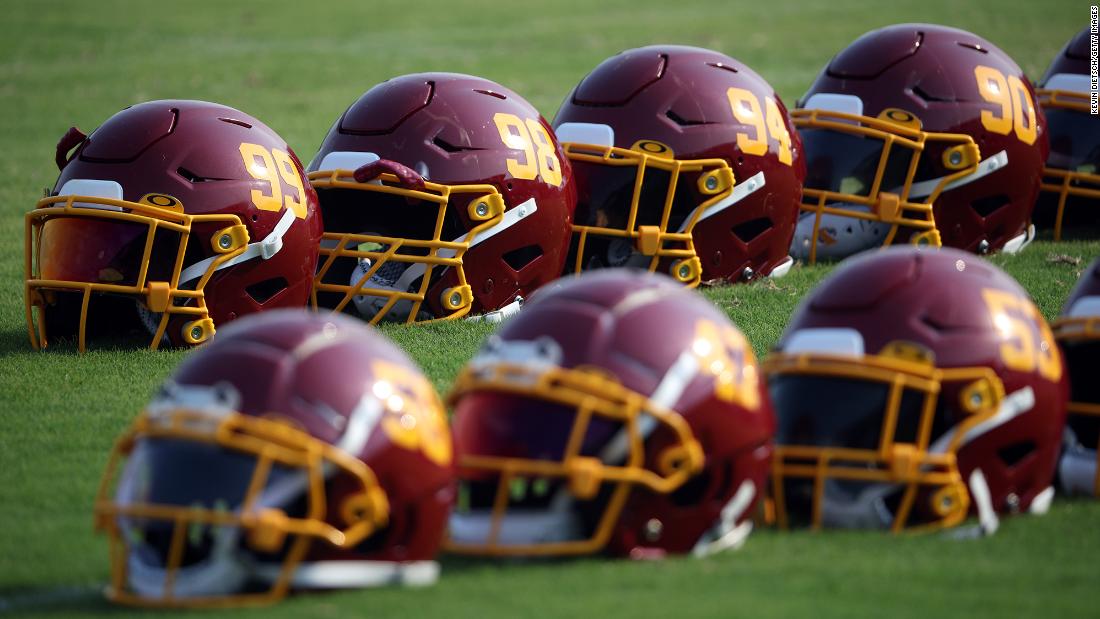
Washington will continue to use its burgundy and gold color scheme but have given few clues as to the new identity. Team president Jason Wright said last month that the new name will not be “Wolves” or “RedWolves” due to trademark issues.
“We can’t wait to hit the ground running with our team name and identity on a clear path — one without distracting obstacles, legal or otherwise,” Wright said. “And while we’ve always understood it would be a nearly impossible task to select a name that all of our fans would identify with as their first pick, we are very excited about our final selection, which aligns with our values, carries forth our rich history, represents the region and, most importantly, is inspired and informed by you, our fans.
“We are confident that this identity is one that our team and our fans across D.C., Maryland, Virginia and beyond can rally behind for another 90 years and more as we continue to cheer on the Burgundy & Gold in this next chapter.”
Once one of the NFL’s flagship franchises, Washington has won just two playoff games since Dan Snyder bought the team in 1999 and has been a consistent source of dysfunction and scandal in recent years.
The rise and fall of ‘Redskins’
The team was founded in 1932 as the Boston Braves, but team founder George Preston Marshall changed the name to “Redskins” a year later to avoid confusion with baseball’s Boston Braves. The team moved to Washington DC in 1937.
The name’s reference to skin color, as well as its logo depicting a Native American with feathers in his hair, has been criticized at least as far back as 1971-72. Still, the team steadfastly resisted efforts to change its name, and Washington owner Dan Snyder told USA Today in 2013 that he would “never” do so.
Aside from the team name, the Washington franchise has had other major issues with how it is run.
“Bullying and intimidation frequently took place and many described the culture as one of fear, and numerous female employees reported having experienced sexual harassment and a general lack of respect in the workplace,” NFL Commissioner Roger Goodell said in the release.
Snyder also apologized and took responsibility for the workplace culture in a statement, but he remained in charge of the team.
The emails were leaked to the media in October 2021, forcing Gruden to resign as head coach of the Oakland Raiders.

